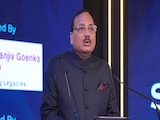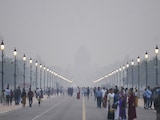Dr Gaurav Gandhi, a well-known cardiologist died after suffering from a heart attack at his residence in Jamnagar, Gujarat. Dr Gandhi's sudden death on Tuesday morning left his family members, friends and patients in a state of shock. According to a PTI report, he came home after attending patients at the hospital. He had his dinner and went to bed like any other day. On Tuesday morning, his family members found him unconscious. He was taken to the hospital where doctors tried to revive him and was declared dead. Doctors said that he died of a heart attack.
People over 65 years of age are at a higher risk of heart attacks. However, a sharp rise in heart attacks among people below 50 has been observed over the past few years. Several global medical reports also highlight a surge in heart attacks among people in their 30s and 40s.
Factors contributing to heart attacks in younger people
High blood pressure, smoking, family history, diabetes, poor cholesterol levels, uncontrolled stress, unhealthy eating and low levels of physical activity are some of the risk factors that put the young population at a greater risk of heart attacks.
Experts often recommend regular screenings and tests for blood pressure, diabetes, blood sugar levels and cholesterol to ensure good health of the heart.
Symptoms of a heart attack
Time plays a crucial role in the treatment of heart attacks. Timely interventions can help save the patient's life. Therefore, one should not ignore the symptoms of a heart attack. Here's a list of these:
- Tightness in chest
- Pain in chest
- Nausea
- Heartburn
- Shortness of breath
- Cold sweat
- Fatigue
- Heartburn
- Uneven heartbeat
A silent heart attack
A silent heart attack is a heart attack that has few or no symptoms. It might not cause chest pain or shortness of breath, which are typically associated with a heart attack. However, a person may experience heartburn or strained chest muscles.
Both silent heart attacks and normal heart attacks occur due to blockage of blood flow to the heart.
Disclaimer: This content including advice provides generic information only. It is in no way a substitute for a qualified medical opinion. Always consult a specialist or your own doctor for more information. NDTV does not claim responsibility for this information.















